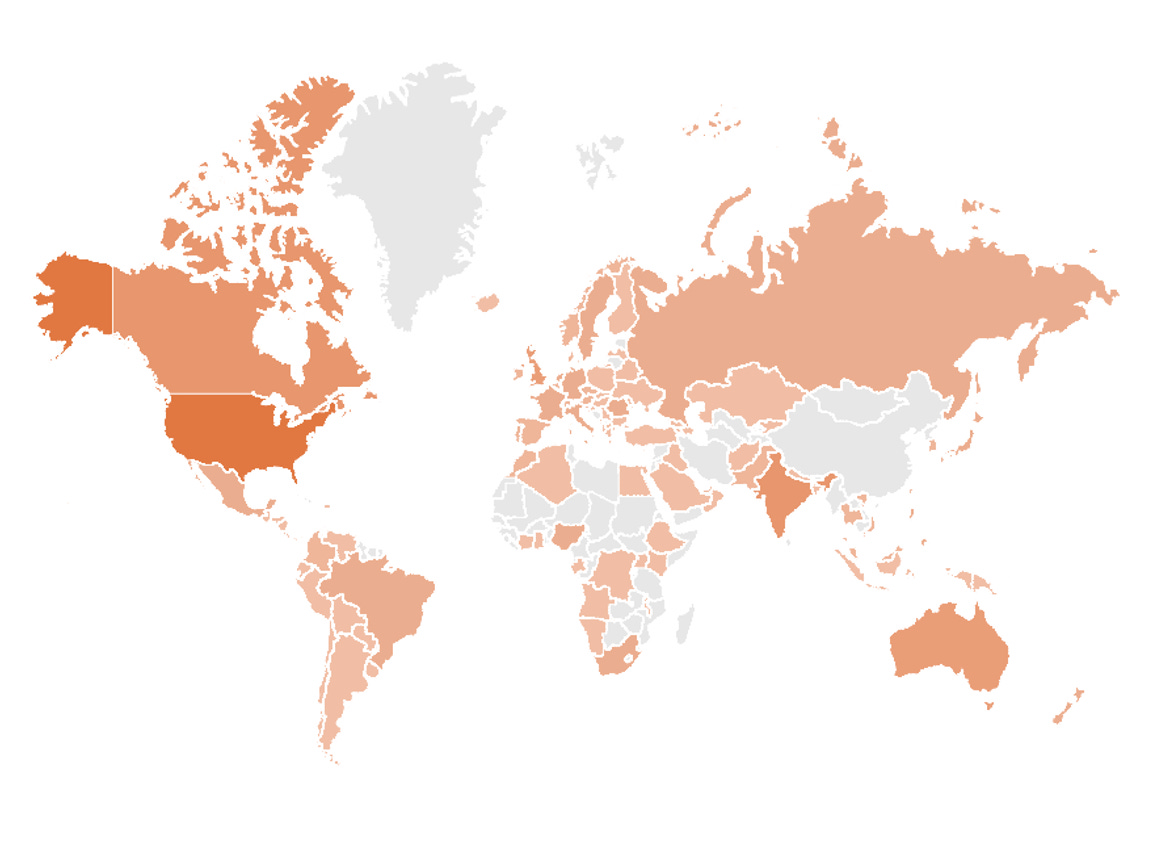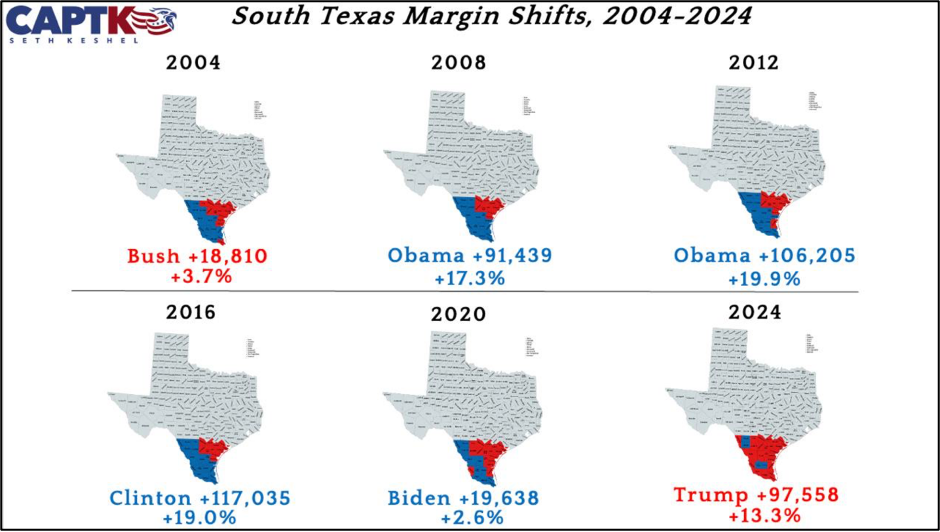3 Critical Reasons the Election of the Next Pope Will Shape Worldwide Politics
While America has become more immune to papal influence, the fate of the West may hinge on the coming election to determine the next pope.
On Easter Sunday, I mentioned the size to which my Substack audience has expanded in just three years. Readers in 120 countries receive Captain K’s Corner, as you can see below on the platform map generated for me.
The gray-colored nations, in which I have zero readership, are striking to me because it clearly demonstrates the impact of government preventing its subjects from being able to access information that paints a clear picture of world events (mine or others like mine). What is also easily discernible by spread is that I most certainly have readers from every significant world religious group – Christians, Muslims, Jews, Buddhists, Hindus, and the non-religious receive my writings and certainly know where my own views stand. Each group has their own sects and split offs – for example, Protestant Christians and Catholics.
I don’t purport to be an expert on Catholicism, but since the death of Pope Francis was announced two days ago, I’ve begun to realize how important the replacement process is shaping up to be, and how the next pope will play a pivotal role in political discourse over the next two decades (provided this next pope lives that long after taking over). Remember, America is in a Fourth Turning, and what ripples through our country during this period of crisis is felt throughout the world, given America’s stature as world superpower (The Fourth Turningis a must-read about cyclical crises that have shaped American life for centuries). I say this because the Pope, although Europe-based and most impactful in the Eastern Hemisphere, holds significant influence over global politics and the things that determine whether nation states will remain sovereign states or gain back lost sovereignty.
I had this to say in my article two days ago about the current politics of the Catholic Church, spearheaded by Pope Francis:
The next pope will certainly carry influence with Catholics in America, as they all do, but given the results of the last election, it doesn’t seem like the migration rhetoric is guilting Latinos into voting for open-borders candidates anymore.
You can expect think tanks and NGOs to get involved ASAP in information operations to help sway the election of the next pope. They’ll want to turn the tide on global populism starting right there in Europe, and will be as bold as those who threw the book at Marine Le Pen to stop her from ascending to the French Presidency. European politics are about 20 years ahead of ours when it comes to battles for sovereignty and other issues of national survival, such as low birth rates and the plague of radical feminism, and the only thing keeping the populist right in check in Europe is the severe weight of information operations and church guilt foisted upon them to do things against their own national interests.
Once the new pope is elected (here is how the very complicated and secretive process works), he will immediately begin exerting influence over global politics. Unfortunately, Francis selected almost 80% of all cardinals who will be charged with selecting the next pope.
Will this be another “soft resist” type, or is it possible to have a pope come to power who will back common-sense reforms and undo the emotional blackmail foisted upon nations to do things that sabotage their own citizens? Here are the three most crucial elements of new pope politics that I believe will come into view by mid-Summer:
I. Migration Policy
I already mentioned that Francis thought Donald Trump’s border wall was “not Christian,” which by default suggests he felt that all humans everywhere had a right to move from one country to another without regard for the impact to the receiving country – either economically or with regard to the ability of these new arrivals to assimilate to the new country or refrain from lives of crime.
The countries that have been most impacted in Europe by migratory politics are Italy, Hungary, Greece, France, and Germany. The first three listed in that group are key transit points for African and Middle Eastern migrants seeking to reach Western Europe after land or sea crossings into Europe. Hungary has been a hardcore resister of EU migrant resettlement plans, and Europe and Italy have been strained to the point of breaking in processing the hundreds of thousands of migrant non-citizens seeking greener pastures in Europe – especially in nations like France and Germany.
Migrant crime is so bad that police throughout Europe have resorted to nanny-state nonsense like rounding up citizens for simply suggesting mass deportations. Because of reckless migrant resettlement policy, political coalitions stamped far-right by the political ruling class have sprung up, resulting in elections like Giorgia Meloni’s to the office of Italian Prime Minister.
To make matters worse, European women aren’t producing enough European babies per womb to even come close to replacing the current population (need 2.2 babies per woman), meaning migrants, aided by their huge birth rates, will come to replace them in a matter of decades in nations like the United Kingdom and Germany. The influence of the pope in European political affairs is important, because not only does he sway voters, but he also sways governments into taking unilateral actions in one way or the other where the technicality of law allows.
Fortunately for Americans, the pope’s influence on migration has lessened in the New World. People are sick to death of hearing the latest mass slashing story or watching the minority working-class become impoverished under the flow of tens of millions of migrants crossing our southern border per decade. There is perhaps no more telling graphic that I can show you as to how much the migration narrative has crumbled than Trump’s gains in South Texas, which has counties that turned red that had never before voted for a Republican presidential nominee:
The next pope will be instrumental in either prolonging Europe’s misery regarding migration policy, setting the stage for further societal breakdowns, or for relieving the emotional blackmail placed on policy makers and pushing for common sense reforms and, in a true reversal of narratives, encouraging the building up of developing nations that are currently sending out their underclasses to be someone else’s problem.
II. Foundations of Globalism





